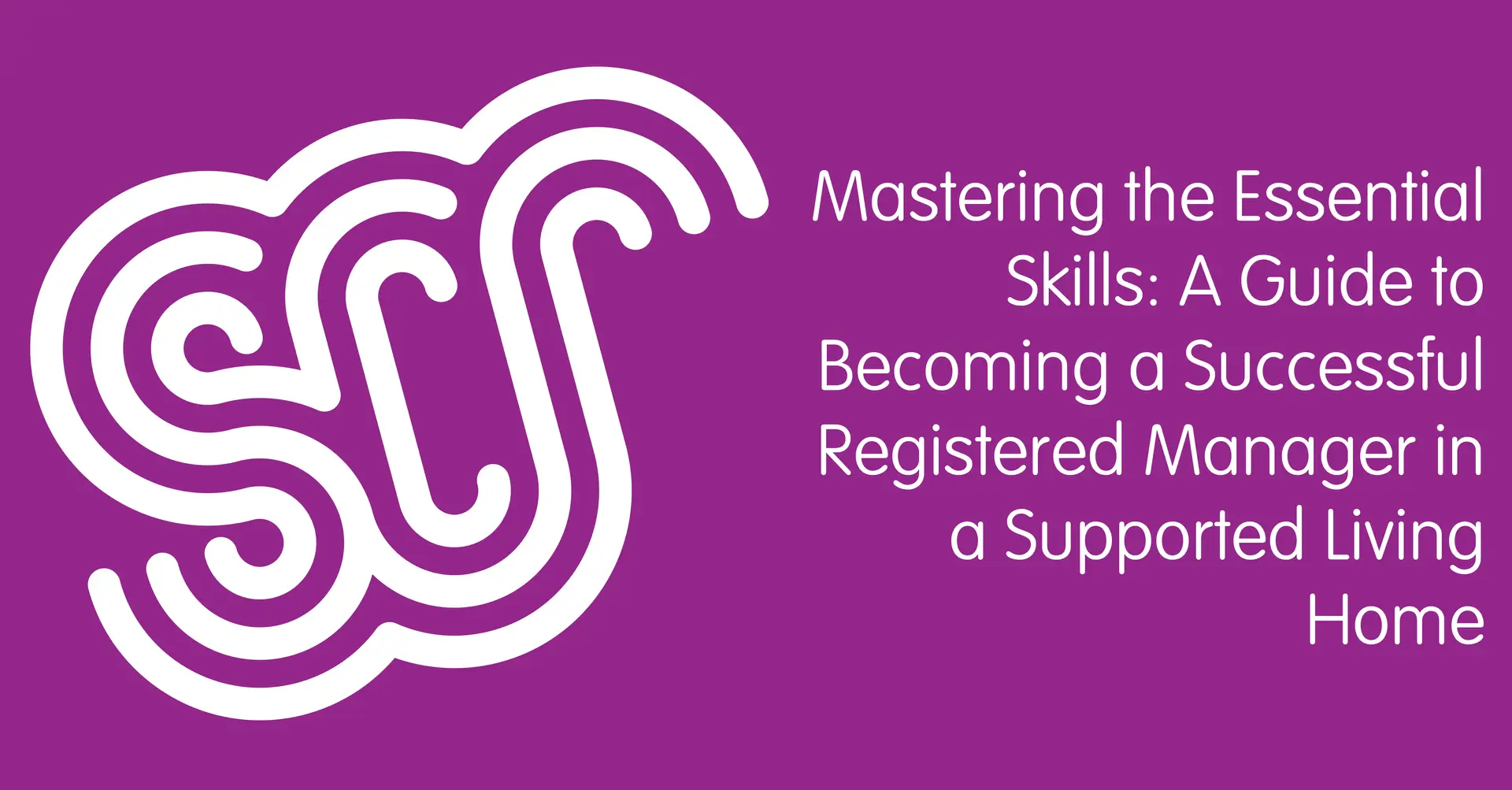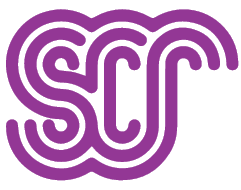
Mastering the Essential Skills: A Guide to Becoming a Successful Registered Manager in a Supported Living Home
Becoming a successful registered manager in a supported living home requires a unique set of skills and qualities. From providing high-quality care to managing a team, this role demands expertise in multiple areas. Learn how to effectively communicate with residents, their families, and your team members, fostering a supportive and inclusive environment. Develop the leadership skills necessary to inspire and motivate your staff to consistently deliver excellent care and embrace the values of the home.
In this guide, we’ll also explore the regulatory requirements and best practices that registered managers must adhere to, ensuring the highest standards of care are maintained. Whether you’re already a registered manager or aspiring to be one, mastering the essential skills outlined in this guide will set you on the path to professional success in the field of supported living homes.
Responsibilities and Duties of a Registered Manager
Being a registered manager in a supported living home comes with a wide range of responsibilities and duties. As the leader of the home, you are responsible for overseeing the day-to-day operations and ensuring the well-being of the residents. This includes managing staff, coordinating care plans, and ensuring compliance with regulatory standards. Additionally, you play a crucial role in fostering a positive and inclusive environment for both residents and staff.
One of the key responsibilities of a registered manager is to recruit, train, and manage a team of care staff. This involves conducting interviews, providing training and support, and ensuring that staff members are equipped with the necessary skills and knowledge to deliver high-quality care. Effective communication and leadership skills are essential in this role, as you’ll need to motivate and inspire your team to provide the best possible care for residents.
Furthermore, as a registered manager, you are responsible for developing and implementing person-centered care plans. This involves working closely with residents and their families to understand their individual needs and preferences, and tailoring care plans accordingly. Regularly reviewing and updating these care plans ensures that residents receive the appropriate support and care as their needs evolve.
Understanding the Care Quality Commission (CQC) Regulations and Compliance
In the United Kingdom, registered managers in supported living homes must adhere to the regulations set by the Care Quality Commission (CQC). The CQC is an independent regulator that ensures health and social care services meet the necessary standards of quality and safety.
Understanding the CQC regulations and compliance is essential for registered managers to ensure the highest standards of care are maintained. The CQC conducts inspections and assessments to assess the quality of care provided by registered homes. As a registered manager, you’ll need to familiarize yourself with the CQC’s guidelines and regulations, ensuring that your home meets the required standards.
Some of the key areas that the CQC focuses on include person-centered care, safety, effectiveness, responsiveness, and leadership. Registered managers are responsible for implementing policies and procedures that address these areas and demonstrate compliance with the CQC’s standards.
Regular audits and self-assessments are necessary to identify areas of improvement and ensure ongoing compliance. This involves conducting internal audits, reviewing policies and procedures, and addressing any issues or concerns that may arise. By regularly monitoring and evaluating the quality of care in your supported living home, you can identify areas for improvement and take proactive measures to enhance the well-being of your residents.
Managing and Supporting Staff in a Supported Living Home
One of the key responsibilities of a registered manager is to manage and support the staff in a supported living home. Effective management ensures that the care provided by staff is of the highest quality and that the needs of residents are met.
Firstly, recruiting and selecting the right staff members is crucial. This involves conducting interviews, checking references, and assessing the skills and experience of potential candidates. By carefully selecting staff members who align with the values of the home and have the necessary skills and qualifications, you can build a strong and dedicated team.
Once staff members are onboard, providing ongoing training and support is essential. This includes initial induction training to familiarize new staff members with the policies, procedures, and values of the home. Additionally, offering regular training opportunities and professional development ensures that staff members have the knowledge and skills required to deliver excellent care.
Supporting staff members also involves providing regular supervision and feedback. This allows for open communication, the identification of any issues or concerns, and the opportunity to address them promptly. Recognizing and rewarding staff members for their achievements and providing constructive feedback for improvement fosters a positive and motivated work environment.
Implementing Person-Centered Care Plans
Person-centered care is a fundamental approach in supported living homes, and as a registered manager, implementing person-centered care plans is essential. Person-centered care focuses on the individual needs, preferences, and aspirations of residents, ensuring that their care is tailored to their unique circumstances.
To implement person-centered care plans effectively, it’s important to involve residents and their families in the decision-making process. This includes actively listening to their preferences, respecting their choices, and involving them in the development and review of care plans. By understanding and acknowledging the individuality of each resident, you can provide care that is sensitive, respectful, and aligned with their values.
Regular communication and collaboration with residents and their families are key in maintaining person-centered care. This involves providing regular updates on care plans, involving residents and their families in care reviews, and adapting care plans as needed. By actively involving residents and their families, you can ensure that their voices are heard and that their care remains person-centered.
Furthermore, person-centered care extends beyond the physical aspects of care. It also encompasses emotional, social, and spiritual well-being. Supporting residents in maintaining social connections, pursuing hobbies and interests, and addressing their emotional and spiritual needs contributes to their overall well-being and quality of life.
Monitoring and Evaluating the Quality of Care in a Supported Living Home
Monitoring and evaluating the quality of care in a supported living home is crucial for registered managers to ensure that residents receive the highest standards of care. This involves implementing systems and processes to track and assess the quality of care provided, identify areas for improvement, and take proactive measures to enhance the well-being of residents.
Regular audits and inspections are essential in monitoring the quality of care. This includes internal audits, external inspections by regulatory bodies, and resident and staff feedback. By regularly evaluating the care provided, you can identify any gaps or areas for improvement and take appropriate actions.
In addition to audits and inspections, gathering feedback from residents and their families is invaluable in assessing the quality of care. This can be done through regular meetings, surveys, or suggestion boxes. By actively seeking feedback and addressing any concerns or suggestions, you can continuously improve the care provided and ensure that residents’ needs are met.
Furthermore, ongoing professional development and training for staff members contribute to the quality of care. By providing opportunities for staff to enhance their skills and knowledge, you can ensure that they are equipped to provide the best possible care for residents.
Continuous Professional Development for Registered Managers
Continuous professional development is essential for registered managers to stay up-to-date with the latest practices, regulations, and trends in the field of supported living homes. By investing in your own professional development, you can enhance your skills, knowledge, and expertise, and provide better leadership and care for residents.
Attending relevant conferences, workshops, and seminars is one way to stay informed about the latest developments in the field. These events provide opportunities to learn from industry experts, network with peers, and gain insights into best practices. Additionally, joining professional associations and organizations can provide access to resources, training programs, and networking opportunities.
Continuing education courses and certifications are also valuable in expanding your knowledge and skills. These courses cover a wide range of topics, from leadership and management to specific areas of care. By continuously expanding your knowledge base, you can stay ahead of industry trends and provide innovative solutions for the challenges faced in supported living homes.
Furthermore, seeking mentorship or coaching from experienced professionals can provide valuable guidance and support in your professional development journey. By learning from those who have excelled in the field, you can gain insights, strategies, and perspectives that can enhance your own practice.
If you want to get in contact with us you can Contact Us
